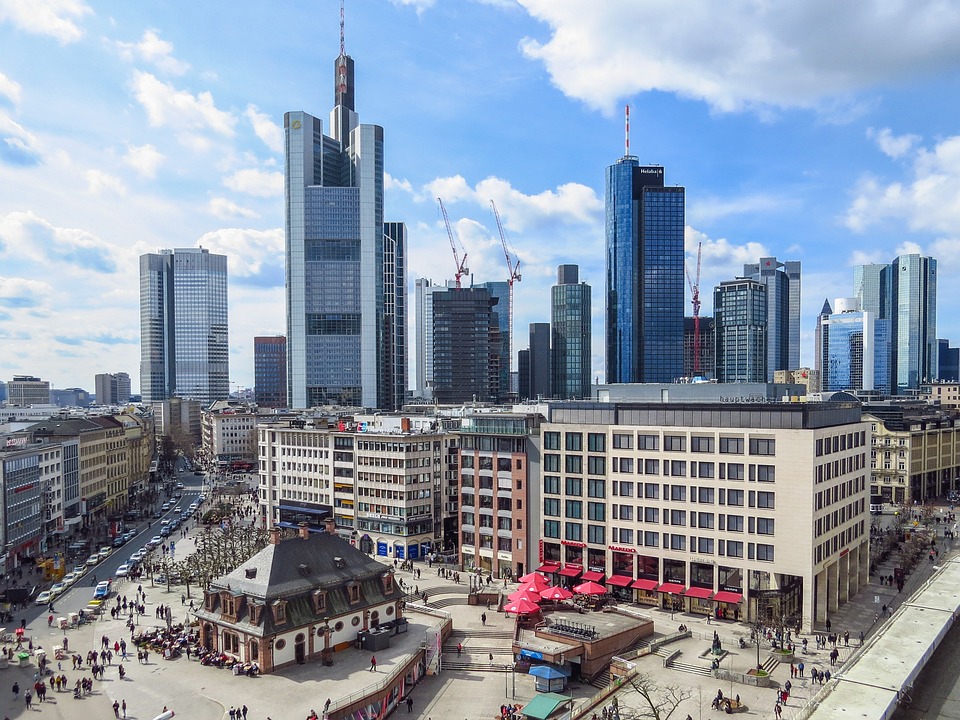From 1147 onwards, the election of the German king took place in Frankfurt and the right to this was established in the ‘Golden Bull’ in 1356. Frankfurt became a royal free town in 1372 and ten kings in total were crowned in the Kaiserdom.
From 1333 onwards a new city wall with new moats and fortification towers was built. Because the town hall was also too small, the town bought the Patrizierhaus ‘Zum Roemer’ in 1405.
In 1533, Frankfurt joined the Lutheran denomination and consequently was taken over by the Imperial Army. Once freedom of religion had been established in the Augsburger Religionsfrieden (Augsburg religious peace) in 1555, Frankfurt was allowed to call itself a Protestant ‘Free City’ of the Roman Empire.
On the 28th August 1749, Johann Wolfgang von Goethe was born in Frankfurt. In 1782 the first town theatre was opened and Friedrich Schiller came from Mannheim to Frankfurt. After the collapse of the Napoleonic Empire, the ‘Free City’ was the permanent seat for the Legation Council of the German Federation.
During the ‘Deutsche Krieg’ (German war) between Prussia and Austria, Prussian troops occupied neutral Frankfurt in 1866 and made it a dependent provincial town. In 1867 Frankfurt’s cathedral was burnt to the ground.
With the start of the Second German Reich in 1870-1, Frankfurt again experienced an upswing ‘ bridges were built, water pipes installed and industrial enterprises founded. Representational buildings such as the Alte Oper, Hauptbahnhof (Main Station) and Städel were built. Through many expansion programmes, the town area increased in size more and more.
The First World War left few traces. In October 1914, the university was opened and the trade fair was revived in 1920. The November Revolution led to the setting up of a Worker’s and Soldier’s Council but this was soon deprived of its power. In the following years, a stadium, racetrack, big market hall and airport were built.
On 12th March 1933 the National Socialists took over power in the Römer and the deportation of Frankfurt Jews began in 1941. From the autumn of 1943 onwards, Frankfurt was bombed by the Allies.
In 1949 Frankfurt lost out to Bonn in the race to become the capital city of Germany. The town subsequently developed its international economic metropolis. With over 400 internal and foreign credit institutions, the Deutsche Bundesbank, the headquarters of the European Central bank as well as the Börse (Stock Exchange), Frankfurt is one of the world’s most important financial centres.












